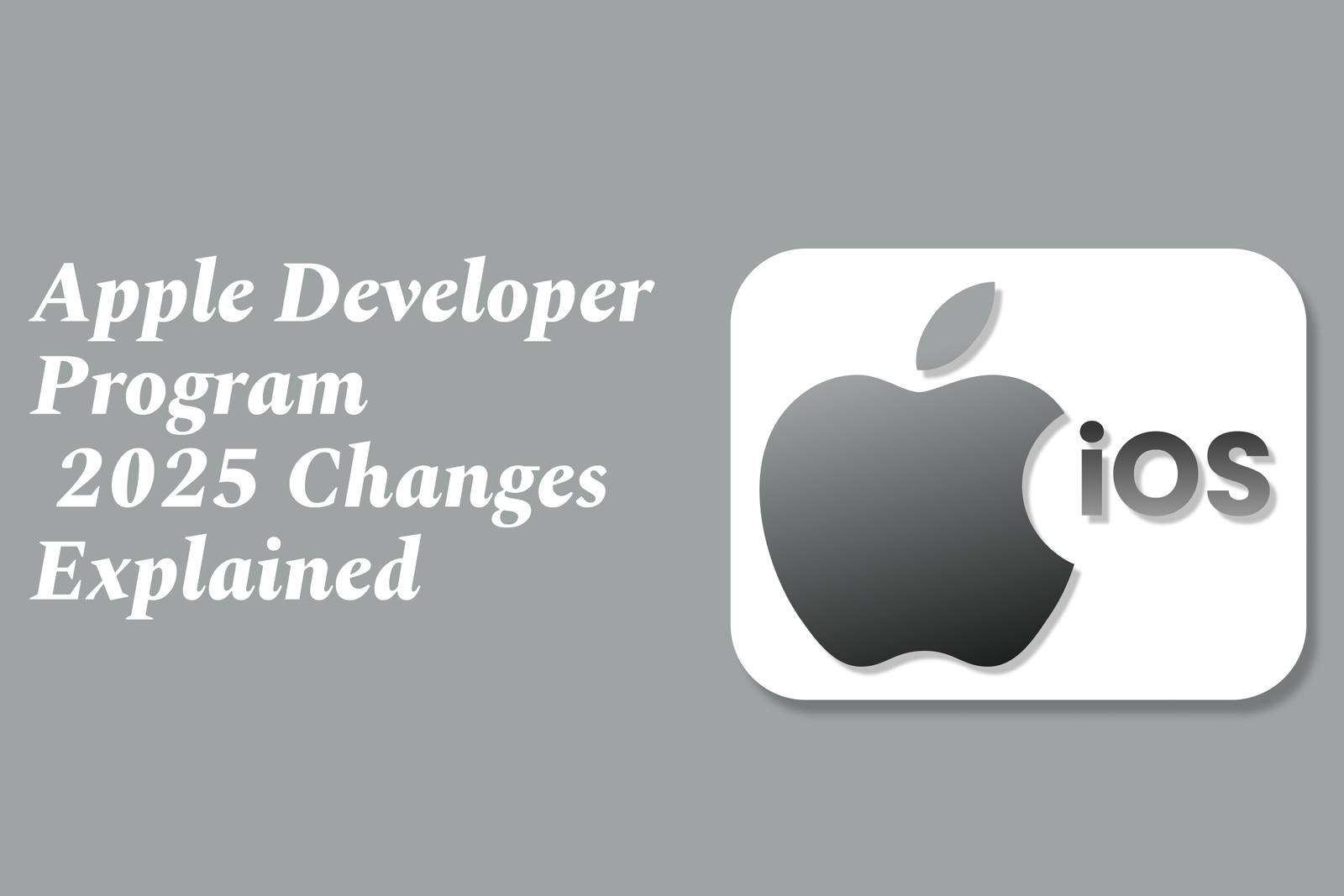Apple Developer Program: 2025 Changes Explained
The Apple Developer Program 2025 updates introduce refined age ratings, enhanced privacy and data policies, and revised guidelines for new APIs and features. These changes aim to improve app safety, compliance, and user experience across all Apple platforms.
Apple Developer Program: 2025 Changes Explained
1 ) Updated Age Ratings in App Store Connect
Apple has enhanced the age rating system for apps and games to offer more precise age categories, adding 13+, 16+, and 18+ to the existing 4+ and 9+.
New mandatory rating questions address in app controls, app capabilities, medical/wellness topics, and violent themes.
Developers can now set a higher minimum age rating than Apple's assigned rating if their app policy requires it.
These updates aim to provide a safer and more age appropriate experience for users worldwide, with regional variations based on local standards.
The new ratings will be visible on Apple devices running beta versions of upcoming OS versions (iOS 26, iPadOS 26, macOS Tahoe 26, tvOS 26, visionOS 26, watchOS 26 ).
2 ) Revised Apple Developer Program License Agreement and Guidelines
The License Agreement and App Review Guidelines have been updated to support new features and policies, effective June 2025.
Key changes include:
Enhanced language on data and privacy requirements.
Specific requirements for use of various APIs and frameworks like ID Verifier, Declared Age Range API, Wi Fi Aware, TelephonyMessagingKit, Default Dialer APIs, EnergyKit, Foundation Models, and iCloud Extended Share APIs.
Removal of outdated Bitcode submission language; replaced with terms related to iOS app widgets on CarPlay.
Updated TestFlight policies on digital purchases and tester invitations.
Clarifications on app icon and widget customizations.
New terms regarding the Apple Games app.
These revisions clarify responsibilities and provide guidance for developers to align with Apple's evolving ecosystem standards.
3 ) Overall Objectives of the 2025 Changes
Enhance user safety, especially for children and teens, through clearer and more granular content ratings.
Improve transparency and compliance regarding data privacy and API usage.
Ensure developer guidelines reflect current technological capabilities and usage scenarios.
Support a trusted and secure App Store environment adapting to new OS features across Apple’s platforms.
Developers are encouraged to review these changes carefully to ensure ongoing compliance and to take advantage of new features and functionalities introduced in the Apple Developer Program in 2025.
https://justacademy.in/news-detail/react-native-performance-hacks-revealed-in-latest-update
https://justacademy.in/news-detail/react-native-for-startups:-a-smart-choice
https://justacademy.in/news-detail/why-react-native-is-still-a-top-skill-for-developers
https://justacademy.in/news-detail/flutter-internships-&-mentorships-2025
https://justacademy.in/news-detail/dart-pub-trends-in-2025
Related Posts
Java supports GDPR and data privacy by enabling secure data handling through encryption, controlled access, and precise data management. It allows developers to minimize PII exposure, ensure data confidentiality, and design workflows that comply with data protection regulations effectively.
Java code quality tools have evolved to include advanced static analysis, integrated security checks, and AI-powered code reviews. These updates help developers detect bugs, enforce coding standards, and enhance security, streamlining the development process and improving overall code reliability.
Java remains a cornerstone in big tech companies, evolving with modern features like records, pattern matching, and virtual threads. Its robust ecosystem, enhanced performance, and growing AI integrations keep it vital for both legacy systems and innovative new projects.
Java and CI/CD pipeline optimizations streamline Java application development by automating builds, tests, and deployments. They improve efficiency through parallelization, caching, and secure secrets management, enabling faster feedback loops and more reliable, scalable software delivery.
Java supports modern cryptography standards through its flexible Java Cryptography Architecture (JCA), enabling integration of advanced algorithms like AES, EdDSA, and post-quantum tools. Libraries like Bouncy Castle offer FIPS-certified, hardware-accelerated implementations for secure development.
Java 23 enhances record patterns by enabling concise, direct destructuring of record components within pattern matching, simplifying type checks and data extraction. This improvement boosts code readability and expressiveness by reducing boilerplate in handling immutable data classes.
Java remains a top choice for mobile app backends, powering scalable, secure, and high-performance server-side solutions. Latest trends include cloud-native microservices, reactive programming, and enhanced JVM optimizations, enabling efficient, flexible, and robust mobile backend development.
Java SE 24 and LTS Java SE 21 offer enhanced features and performance, while Apache Spark 4.0.0 introduces Scala 2.13 support and advanced ML and SQL capabilities. Together, they empower developers to build scalable, high-performance data applications with modern tools.
JUnit 5 modernizes Java testing with a modular architecture, improved assertions, and seamless Java 8+ support. Beyond JUnit, tools like Mockito and AssertJ enhance mocking and assertions, creating a powerful, flexible ecosystem for writing clean, efficient Java unit tests.
Java plays a pivotal role in cloud automation tools by providing a robust, platform-independent language used to build scalable automation frameworks like Jenkins and Selenium, enabling efficient CI/CD pipelines, testing, and orchestration across diverse cloud environments.










